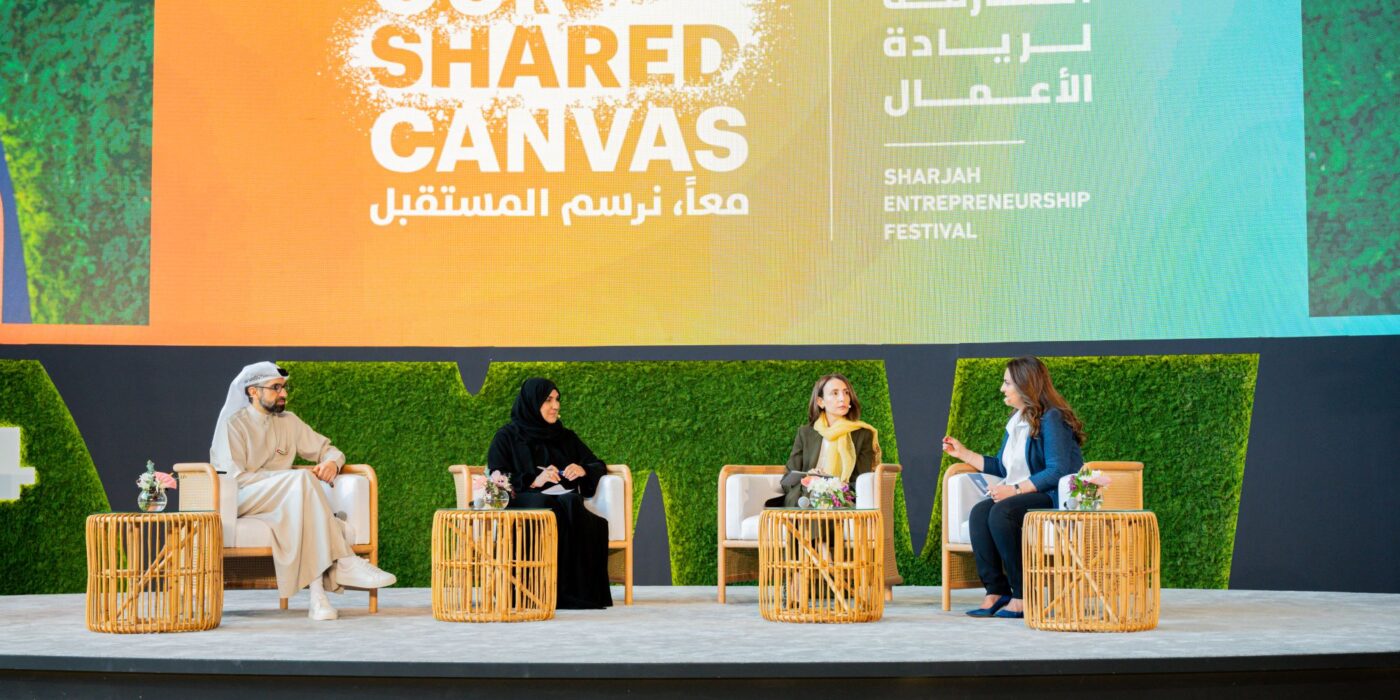Revolutionary educational reforms for shaping entrepreneurship and the future workforce recommended at SEF 2024
The Sharjah Entrepreneurship Festival (SEF 2024) has highlighted important facets of revolutionising education for entrepreneurship and future challenges, at a thought provoking panel discussion titled ‘Shaping Minds, Empowering Futures: The New Education Landscape’, The discussion, held on the first day of the festival, was led by Sheikh Sultan Saood Al Qasssimi, renowned educator, researcher and intellectual, and founder of Barjeel Art Foundation; Dr Muhadditha Al Hashemi, Chairperson of the Sharjah Private Education Authority (SPEA); Maysa Jalbout, a recognised leader in international education in development and philanthropy, and was moderated by Mina Al Oraibi, Editor in Chief of The National.
Adapting education for entrepreneurship and the importance of soft skills
Dr. Al Hashemi emphasised the need for a radical shift in educational systems, saying “Our schools must evolve beyond traditional subjects to teach essential 21st-century skills like creativity and critical thinking. We have made progress, and much remains to be done to truly prepare our youth for entrepreneurship.”
Al Qassimi reflected on the importance of lifelong learning and adaptability. “In a world where the Arab region needs to create 33 million jobs by 2030, knowing how to learn and continuously upskill by means of self-education is critical.”
Jalbout addressed the critical issue of access to quality education. “With 16 million children who do not have access to education in the Arab world, our focus must not only be on ensuring that they gain access, but also on the quality of education. Teaching them a broad range of skills including literacy, numeracy, creativity, and social skills are crucial,” she said.
Jalbout also argued that resilience should be cultivated from a young age through goal setting and learning from mistakes. “Encouraging children to take calculated risks is essential for building resilience and preparing them for an uncertain future,” she stated.
Al Qassimi emphasised the importance of balancing global skills with local culture. “While we focus on upskilling in the global language, we must not forget our own language. Thanks to the efforts of our leaders like His Highness Sheikh Dr. Sultan bin Muhammad Al Qasimi, there is a renewed focus on teaching Arabic, ensuring our future generations remain connected to our cultural roots,” he added.
On the future of teaching, “there is a massive shortage of teachers, especially Arabic speakers. We need to make the teaching profession more appealing to attract the best talents,” Jalbout highlighted. Dr. Al Hashemi agreed, “A lot has been done in this regard, but the journey is far from over. Ensuring quality education is a continuous process that requires our collective efforts.”
Innovative visions for the ‘School of Tomorrow’
Another education-related panel at SEF 2024, ‘Welcome to the School of Tomorrow – Hey Siri, take me to the classroom’, moderated by Raya Bidshari, founder of the School of Humanity, featured leading minds in education shared their visions for the future of learning, Wafa Obaidat, founder of Playbook, a learning and edutainment platform for professional women; Marjan Faraidooni, Chief Education and Culture Officer at Expo City Dubai; and Svetlana Velikanova, Founder of Harbour Space University.
Velikanova opened the discussion highlighting the alarming disconnect between current educational systems and the skills needed in the workforce, a gap currently costing the global economy $11.5 trillion. “We at Harbour Space work towards bringing equitable access and excellence in education by integrating real-life work experiences with our academic programmes”, she said.
Faraidooni shared insights from Expo City Dubai, emphasising the importance of real-life experiences in education, saying, “Our goal is to inspire young learners around critical topics for humanity, using the power of storytelling and immersive experiences. We aim to graduate empowered young people driven by strong values.”
Obaidat focused on equipping women with critical soft skills and real-world knowledge that the traditional education system often overlooks. “The aim should be to bridge the gap between education and the actual skills needed in the workforce,” she said.
The panellists agreed on the need for a more personalised, project-based, and real-world oriented approach to education, with Velikanova stressing the value of online learning coupled with in-person socialisation, suggesting a more flexible, modular education system like Finland’s. Faraidooni highlighted the need for educational experiences that go beyond textbooks, involving students in real-life challenges and soft skills development.
The panel concluded with a call for a reimagined role of educators and an innovative approach to business models in schools. “We need to transition from traditional teaching to facilitating learning, mentoring, and designing meaningful educational experiences,” said moderator Bidshari.
Into its seventh year, Sharjah Entrepreneurship Festival continues to be a platform for critical discussions, shaping the future of education and entrepreneurship in the region.
-ENDS-
SEE ALL STORIES
